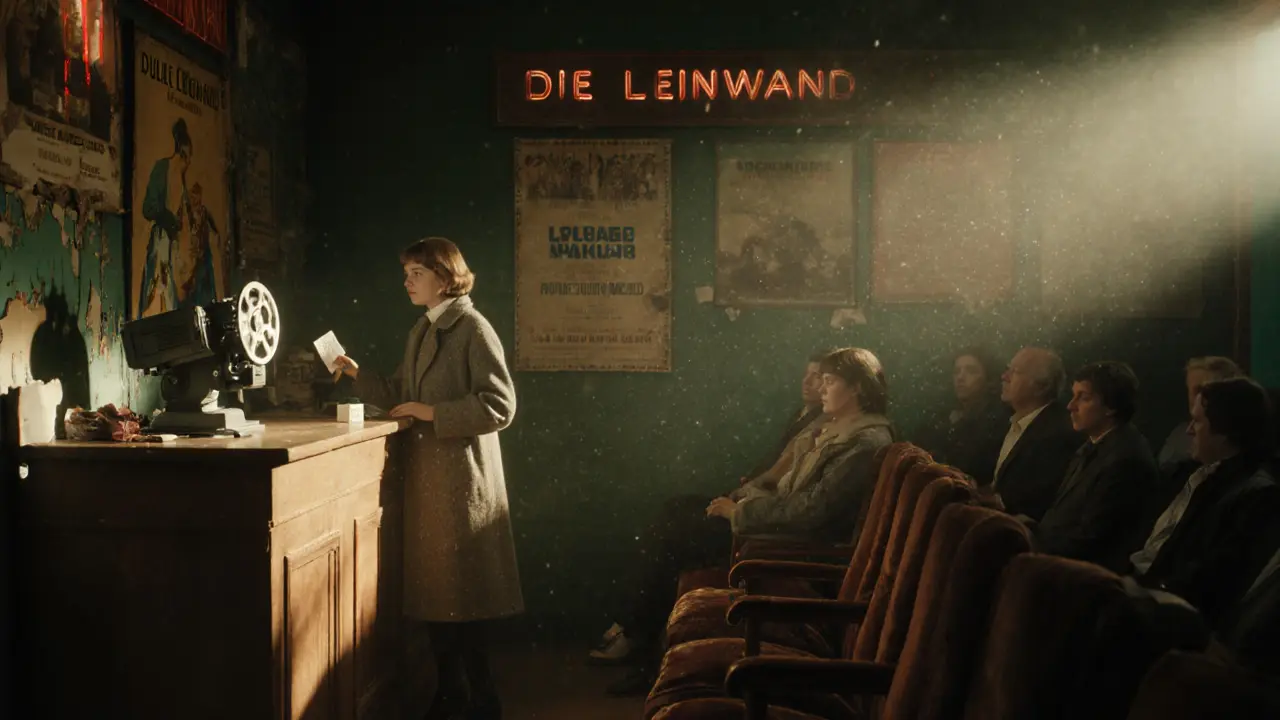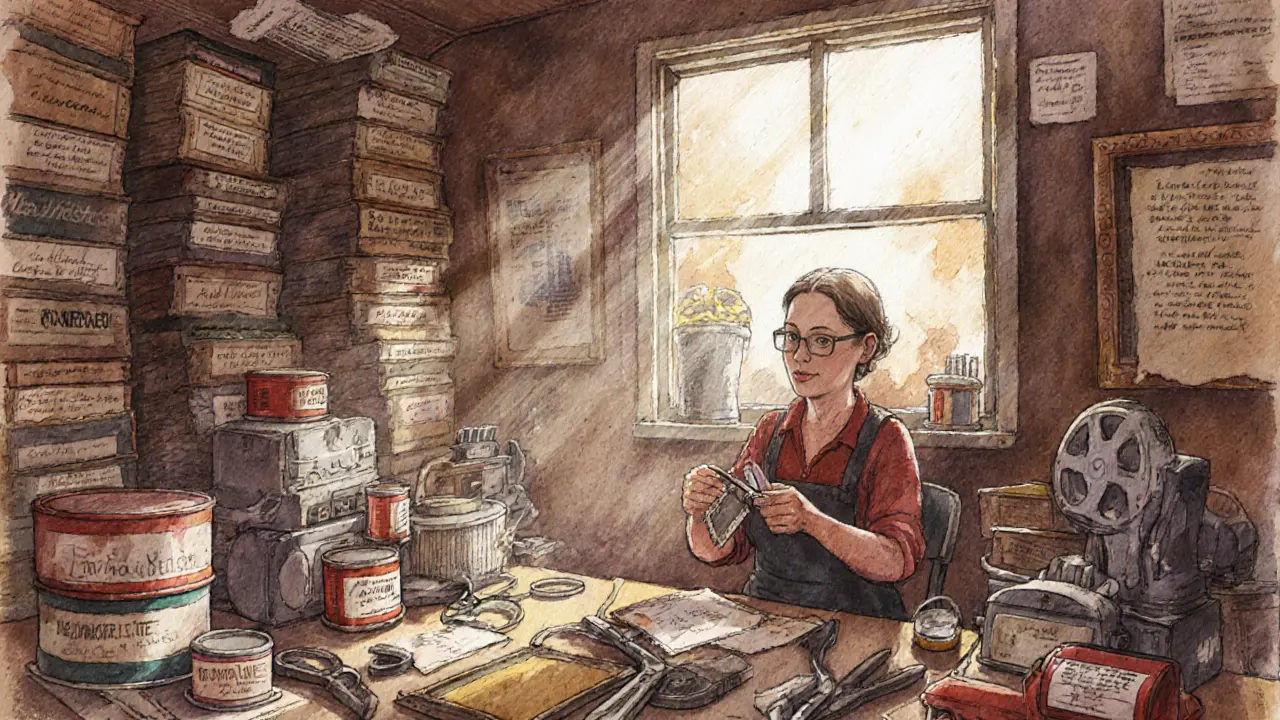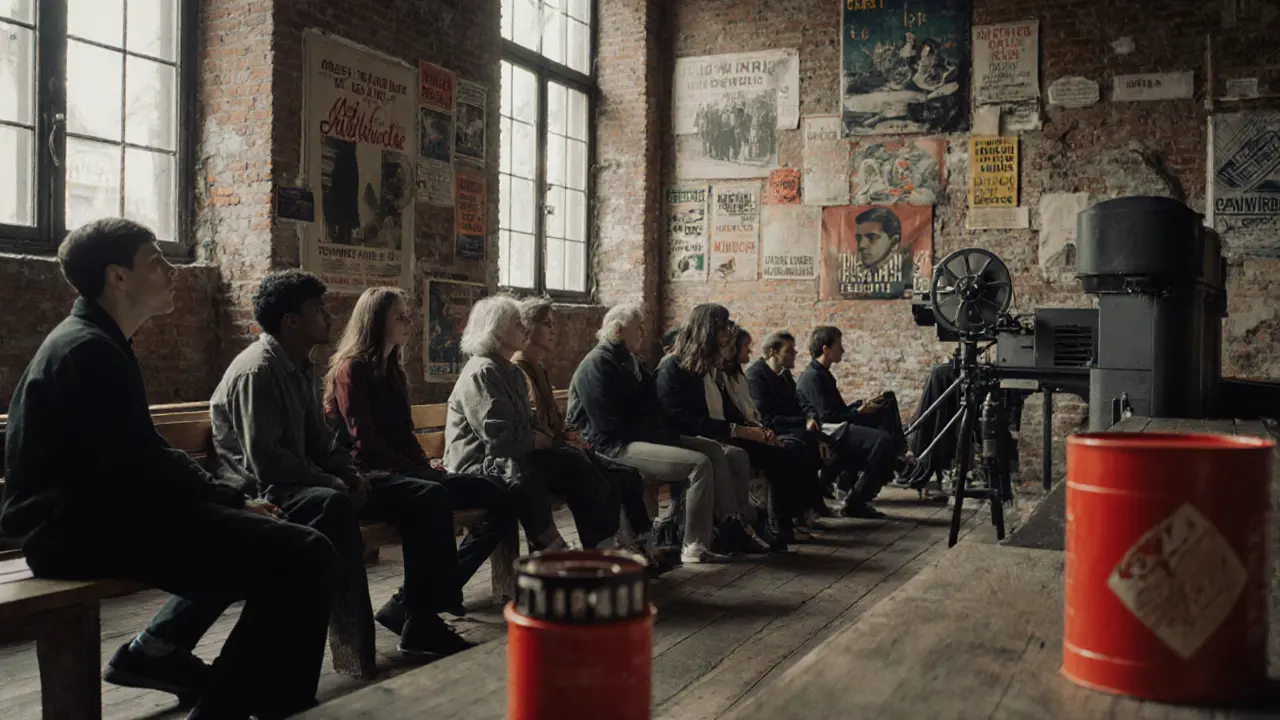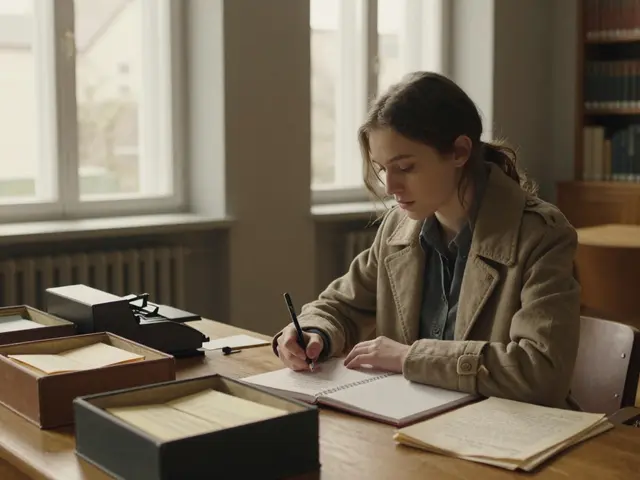Vivian Schmitt: The Munich Queen of Cinema

- Maximilian Von Stauffenberg
- 4 November 2025
- 0 Comments
When you think of Munich’s film scene, names like Wim Wenders or Rainer Werner Fassbinder often come up. But there’s another name that quietly shaped the city’s cinematic identity - Vivian Schmitt. Not a Hollywood star. Not a festival darling. Just a woman who loved movies so much, she turned her passion into a movement.
How Vivian Schmitt Changed Munich’s Movie Culture
Vivian Schmitt didn’t start out in film school. She grew up in a small apartment near the Isar River, where her father ran a second-hand bookshop. Every Saturday, he took her to the old Kino am Platzl, a tiny theater that showed silent films and later, Italian neorealism. By age 14, she knew every frame of The Third Man and could recite the dialogue from The Blue Angel backwards.
In 1987, at 23, she opened the first independent cinema in Munich that didn’t just show mainstream releases. It was called Die Leinwand - The Canvas. No blockbusters. No franchises. Just films that mattered: East German documentaries, Iranian dramas, early works by women directors from Brazil and Nigeria. She didn’t have investors. She used her savings, sold her car, and worked nights at a café to pay the rent.
By 1992, Die Leinwand was the only place in Bavaria where you could see a screening of La Passion de Jeanne d’Arc followed by a Q&A with a film student from Lyon. She didn’t just show films - she made people talk about them. She hosted weekly discussions, invited local artists to write reviews, and even taught free film analysis classes in the back room.
The Munich Film Archive She Built
In 1998, after years of collecting 16mm reels from flea markets and estate sales, Vivian started the Munich Film Archive. Not a government project. Not a university initiative. Just her garage, two film projectors, and a handwritten catalog of over 3,000 titles.
She didn’t care about preservation standards. She cared about access. If a film was rare, she copied it. If it was damaged, she repaired it with tape and patience. She once spent six months restoring a 1923 silent film about Munich’s post-war street musicians - found in a dusty box labeled “Bavarian Folklore - Do Not Open.”
Today, the archive holds over 12,000 items: films, posters, scripts, and even ticket stubs from the 1950s. It’s now housed in a converted 19th-century printing press, funded by donations and a small city grant. But it still runs on Vivian’s rules: no membership fees, no timed screenings, and always free for students.

Why She Refused to Be a Director
Many offered her the chance to direct. Producers wanted her to make a “Munich love story” with big names. She turned them all down.
“I don’t need to be on screen to change how people see cinema,” she once said in an interview with Der Spiegel. “I want people to walk into a theater and feel like they’re discovering something they didn’t know they were missing.”
Instead of directing, she mentored. Over 200 filmmakers - mostly women, many from immigrant backgrounds - got their first break through her network. One of them, Lena Klinger, went on to win the Silver Bear at Berlinale in 2021 for her debut film Stadt ohne Namen, which was shot entirely in Munich’s abandoned train yards. Vivian helped her secure the location.
The Unseen Impact
Before Vivian, Munich’s film culture was dominated by tradition. Old-school cinephiles, state-funded festivals, and a heavy focus on German classics. She introduced something new: urgency. A sense that cinema wasn’t about history - it was about who was still making it, and who still needed to be heard.
Today, every major film festival in Bavaria has a “New Voices” section. That’s because of her. The city’s public schools now include film literacy in their curriculum. That’s because of her. The Munich Film Days, now a 10-day event with 50,000 attendees, started as a one-night screening she organized in 1995.
She never took a salary from the archive. She lives in the same apartment she moved into in 1985. Her only luxury? A collection of 1970s film cameras she fixes on weekends.

What She Left Behind
Vivian Schmitt isn’t in the IMDb database. There’s no Wikipedia page. No documentary has been made about her. But if you walk into any independent cinema in southern Germany, you’ll see her influence.
She didn’t want fame. She wanted relevance. And she got it - not through awards, but through persistence. Through showing up. Through saying yes to a student who had no money but a great idea. Through keeping the lights on when no one else would.
She’s not the queen of cinema because she made the most films. She’s the queen because she made space - for voices, for films, for people who didn’t fit in anywhere else.
How to Find Her Legacy Today
If you’re in Munich, visit Die Leinwand on a Tuesday night. The screenings still start at 7:30 p.m. - no promotions, no influencers, no fancy lighting. Just a screen, a projector, and a room full of people who came because they believed in something real.
The archive is open every Saturday from 10 a.m. to 4 p.m. You can browse the collection. You can watch films on old projectors. You can even borrow a reel for free. No ID needed. Just curiosity.
And if you ever meet someone who says, “I didn’t know cinema could be like this,” chances are, they met Vivian Schmitt - even if they never knew her name.
Who was Vivian Schmitt?
Vivian Schmitt was a Munich-based film curator, archivist, and cultural activist who transformed the city’s independent cinema scene starting in the late 1980s. She founded Die Leinwand, a pioneering non-commercial cinema, and built the Munich Film Archive, preserving over 12,000 rare films and artifacts. She never directed a feature film but mentored hundreds of emerging filmmakers, especially women and immigrants, and made cinema accessible to everyone - free of charge.
Did Vivian Schmitt win any awards?
No, Vivian Schmitt never accepted public awards or recognition. She believed film culture should be about the work, not the accolades. However, in 2020, the Bavarian Ministry of Culture quietly named her an Honorary Cultural Ambassador - a title she never publicly acknowledged. Her name does not appear on any official plaque or press release.
Is the Munich Film Archive open to the public?
Yes. The Munich Film Archive is open every Saturday from 10 a.m. to 4 p.m. at its location in the former printing press on Schellingstraße. No appointment is needed. Visitors can browse the collection, watch films on original 16mm projectors, and borrow reels for home viewing at no cost. All materials are available to anyone with a genuine interest in cinema.
How did Vivian Schmitt fund her projects?
She funded everything herself - using savings, working night shifts at a café, selling personal belongings, and accepting small donations from film lovers. Later, she received modest grants from local arts councils, but only after refusing larger offers that came with strings attached. She never took corporate sponsorship or advertising revenue. Her rule was simple: if it compromises the film, it’s not worth it.
Why is she called the "Queen of Cinema" in Munich?
The title isn’t official - it was coined by a group of students in 2001 after they organized a tribute screening. It stuck because she didn’t rule with power, but with presence. She didn’t control the industry - she created space for those left out of it. In a city known for tradition, she made cinema feel alive, unpredictable, and deeply human. That’s why people call her queen - not because she had a crown, but because she gave one to everyone else.



